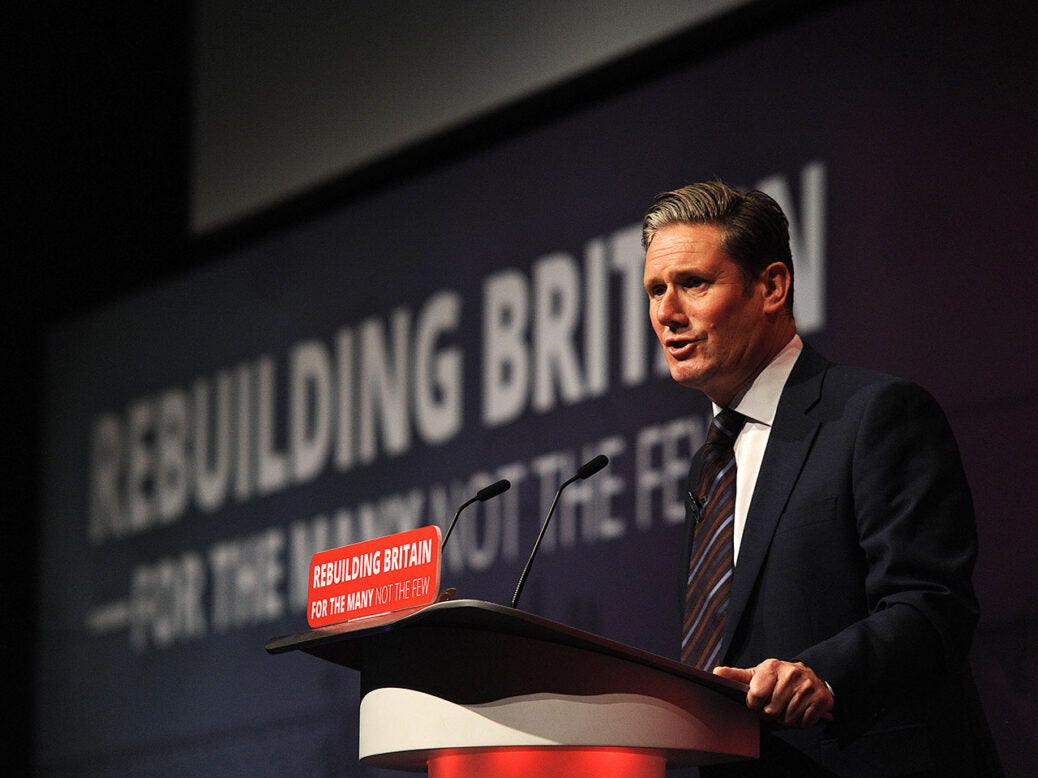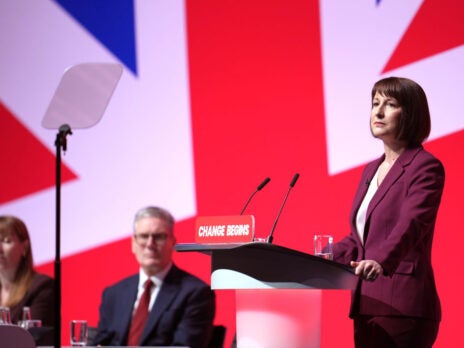
We’re coming to the one-year anniversary of Labour leading the Conservatives in the opinion polls by landslide-esque lengths. The generally accepted view among voters is that the next prime minister will be Keir Starmer.
As a result, more scrutiny has been levelled at the Labour leader. Policy positions are being demanded on anything and everything. Opinion suggests that it’s all inoffensive, backed by most voters in the polling. For example, the party’s refusal to abandon the two-child limit on benefit payments to families, introduced by the Conservatives, is relatively popular, even among Labour voters.
The party’s supposedly more radical measures on oil and gas corporations also attract big support. Labour’s muted approach to the government’s Rwanda deportation scheme reflects the national split on the issue. Its refusal to commit to either abolishing or maintaining the plan to send refugees to the African country might annoy its left-wing base, but the reticence reflects the median Briton’s seeming hesitance on the subject. They want control. They want to be strict. And though the nation no longer entertains figures such as Nigel Farage with as much enthusiasm, it remains conservative on the issue.
What we're seeing from a party 20 points ahead in the polls is less New Labour, more Median Labour: appeal to the average, worry about the rest later. Avoid radicalism lest you squander that poll lead on competence, but don’t be so cautious as to imply impotence. This is a balancing act – a strategy that follows the public, rather than leads it. The purpose is to entice wavering Conservatives and, at the very least, reassure them enough that they avoid voting in an anti-Labour direction.
The evidence suggests that it’s working. The share of Tory voters incensed by the idea of a Keir Starmer premiership is far below the hostility they felt towards Jeremy Corbyn. In this narrow sense at least, Starmer’s numbers mirror Blair’s – inoffensive enough to voters to blunt all top-down Conservative Party attempts to rally the public against Labour on election day. This may sound like a cheap strategy but it is in part what led to Labour's landslide in 1997 (as the Blairite poets and bards are wont to forget). Starmer’s strategy is from the same playbook.
But there is a potential pitfall here. Labour’s inoffensiveness risks fuelling a sense of futility. The party’s poll lead, like that of any party in a first-past-the-post democracy, is rooted in a coalition of voters. The primary motivation of that coalition is to eject the incumbent administration. Once this has been achieved, disaffected voters may look elsewhere, departing for greener (pun intended) pastures, perhaps.
There is evidence to suggest they’re ready and waiting. Labour’s 2019 coalition is not as enamoured with Starmer as some may think. The share of 2019 Tory voters who are unhappy with Rishi Sunak is as numerous as the share of 2019 Labour supporters unhappy with Starmer – three in ten.
The lack of enthusiasm from Labour’s 2019 voter base for the leader guiding them back to power is noteworthy. This was not the case for comparable moments in history – David Cameron from 2006-10 for instance. While Cameron’s Conservatives were performing much less favourably with the country than Labour is today, the then Tory leader was achieving 70-80 per cent approval among his own base, with fewer than 20 per cent disapproving. Starmer, who leads a party further ahead of the government than Cameron’s Tories ever were, is only satisfying just over half of former Labour voters, with 29 per cent disapproving.
Once an unusually unpopular Conservative government has been evicted, Median Labour’s present potency with voters will be blunted. It could attract enough support to guarantee victory, even from a weak starting position. But retaining it? That might require a different strategy.
[See also: Keir Starmer’s most dangerous months now lie ahead]


